





- September 23, 2022
- 127 Views
Decentralized Finance (DeFi) is a modern and evolving region of finance that is less centralized and more open to innovation and collaboration. DeFi enthusiasts laud its prospect of disrupting conventional banking and financial services entirely. It encourages peer-to-peer payments that depend on blockchain technology instead of brokers or banks.
It has the power to democratize finance by giving people more control over their own money and data. It could also make financial services more accessible to underserved communities worldwide.
But, the lack of law in the DeFi space has built vulnerabilities disclosed by the 2022 crypto winter.
This DeFi tutorial on decentralized finance development for organizations will let you comprehend everything about decentralized finance, like what it is, how it actually works, how investors can make money in DeFi, the associated risks, and much more. So, let's get started!
What is Decentralized Finance?
DeFi is an abbreviation for “Decentralized Finance.” It refers to the transition from conventional, centralized financial techniques to peer-to-peer finance facilitated by decentralized technologies developed on the Ethereum blockchain.
From lending and borrowing sp to stablecoins and tokenized Bitcoin, the DeFi ecosystem has established a comprehensive network of combined protocols and economic tools.
By executing immutable smart contracts on the Ethereum blockchain, DeFi developers can release platforms that run precisely as programmed and that are unrestricted with an Internet connection.
How Does DeFi Work?
Decentralized finance gives the means to access financial benefits without centralized intermediaries. It utilizes smart contracts to allow peer-to-peer exchanges on Ethereum. There are two key elements that let a financial system work efficiently, i.e.,
- The infrastructure required to operate on
- The currency required to operate with
Infrastructure Ethereum is a DeFi medium utilized for composing decentralized programs. Via Ethereum, you can construct smart contracts that can be employed to deploy a set of rules or necessities under which a deal can be completed. A smart contract cannot be changed as soon as it is deployed.
Currency To build a secure, trustworthy decentralized finance space, a cryptocurrency is required that can act as a medium to communicate with the different protocols. Typically, DeFi operates the DAI stablecoin as its currency. It is a decentralized stablecoin pegged against the US Dollar.
Key Benefits of DeFi
Decentralized finance uses core regulations of the Ethereum blockchain to improve financial transparency and security, unclose liquidity and growth possibilities, and support a standardized and integrated economic system.
Programmability
Programmability is one of the key benefits of DeFi. It allows developers to create new applications and services that can be used by both businesses and individuals. This opens up a range of possibilities for how DeFi can be used in different industries. For businesses, it can allow them to automate processes or create new customer experiences. For individuals, it can give them access to financial products and services that they wouldn't be able to afford otherwise.
Immutability
Another key benefit of DeFi is its immutability. This means that once a contract has been created, it can't be changed or canceled without both parties' approval. This is important because it prevents disputes from arising between parties and helps to ensure that contracts are fulfilled.
Interoperability
Ethereum's composable tool stack guarantees that DeFi protocols and apps are developed to blend and complement one another. With DeFi, programmers and product teams hold the versatility to create on top of present protocols, integrate third-party apps, and customize interfaces. Hence, people usually call DeFi protocols "money legos".
Transparency
DeFi benefits are a big reason why so many people are interested in cryptocurrency. The transparency of blockchain technology is what attracts people to it. Unlike traditional financial institutions, which keep a lot of information confidential, the blockchain is open and transparent. Anyone can see every transaction that has ever taken place on the blockchain. This makes it very difficult for anyone to deceive or scam users. Another advantage of Defi is that it allows users to trade cryptocurrencies without having to worry about their money being stolen.
Permissionless
Unlike conventional finance, DeFi is represented by its open, permissionless access. This means anyone with an Internet connection and a crypto wallet, nonetheless of their geography and usually without the lowest amount of funds needed, can use DeFi apps built on Ethereum.
Also Read: Benefits of NFT Gamification To Transform Gaming Industry
Traditional Finance vs. DeFi
Traditional finance is based on the principle that a lender will give you a loan in exchange for an ownership interest in the asset that you're borrowing money from.
DeFi, on the other hand, is based on the belief that the technology infrastructure will provide liquidity to assets, allowing investors to trade them like stocks. While there are some major differences between the two methods, they both have their benefits and drawbacks. It's essential to choose the best method for your specific needs.
Decentralized finance aims to utilize crypto technologies to unravel a plethora of problems that are present in the conventional financial markets:
| Traditional | DeFi |
| Users must share private information, which is a security issue. | No need to reveal personal information; just connect a digital wallet. |
| The underbanked or unbanked cannot use conventional financial services. | Users hold their own funds, simpler to prevent loss of funds. |
| The clearing and settling of payments can take days. | Transactions can be done instantly. |
| Payment can be blocked, and markets can be closed. | Trustless- no dependency on anyone. Things work as per the protocol. |
| The operation hours are restricted. | The DeFi markets work 24/7/365 days. |
What Are the Risks Associated With DeFi?
When you invest in a DeFi product, you're trusting that the issuer will be able to keep up with their promises. This can be a risky proposition, as there's no guarantee that the issuer will be able to repay your investment.
If you're unsure whether DeFi is right for you, consult a financial advisor who can help guide you through this type of investment's risks and potential rewards. Here are some of the key risks associated with DeFi:
Complexity
DeFiproducts can be quite complex, making them intimidating for those new to the investing world. However, this level of complexity is necessary to offer products that allow customized investment opportunities.
Liquidity
DeFi products can be less liquid than traditional investments, meaning they may not be easily sold or traded. This could make it difficult to exit a position if you decide it's no longer right for you.
Outright Scams
Several fraudsters are trying to steal your cryptocurrency investments. Fraudulent online offerings can attract new investors that would otherwise avoid shady investment opportunities
Regulatory Risks
DeFi products are subject to different regulatory requirements than traditional investments, which could affect their ability to operate effectively.
What Are the Use Cases for Decentralized Finance?
There are a number of use cases for decentralized finance. Some of the most common include:
Asset Management
With DeFi protocols, you manage your own wealth, providing a variety of features for tokenizing and trading. Crypto wallets like Argent, Gnosis Safe, and MetaMask help you efficiently and securely communicate with decentralized apps to do everything from selling, buying, and sharing crypto to accumulating interest on your digital investments.
With DeFi, you hold your data: MetaMask, for instance, saves your seed phrase, private keys, and passwords in an encrypted form locally on your system so that just you can use your accounts and data.
DAOs (Decentralized Autonomous Organizations)
A DAO is a decentralized independent company that collaborates according to transparent protocols encoded on Ethereum, eradicating the necessity for an administrative and centralized entity. Numerous famous rules in the DeFi area, such as Compound and Maker, have released DAOs to fundraise, organize economic processes, and decentralize authority to the community.
Data and Analytics
Because of their outstanding transparency about network activity and transaction data, DeFi protocols provide exceptional benefits for data finding, examination, and decision-making around economic prospects and risk management.
The volatile development of new DeFi apps has prompted the development of multiple tools and dashboards, like DeFi Pulse, that assists users in tracking the value closed in DeFi protocols, assessing platform threat, and contrasting yield and liquidity.
The Bottom Line
Those looking to begin in DeFi, beyond the fundamentals of cryptocurrency trading, should move cautiously and ensure that they work with a trustworthy counterparty. Though the results provided by DeFi are amazing, don’t let the possible return overwhelm you with the other threats.
A downdraft in the cryptocurrency marketplace could fastly wipe out any little profits from yield farming, and theft or scams could take out your crypto assets even faster.
FAQs
How Do DeFi Projects Work?
DeFi projects typically work by using blockchain technology to create a peer-to-peer network that allows users to trade assets without needing a third party. This removes the need for middlemen, which makes transactions faster and more cost-effective. Additionally, since the transactions are recorded on a public ledger, users can trust that the data is accurate and reliable.
What is an example of DeFi?
Examples of decentralized finance organizations are Stobox Technologies Inc., AllianceBlock, Coinbase, Cion Digital, HYPR Corp, Jeeves, Sommelier, Teller, and Symbiont.
How can a beginner invest in DeFi?
Decentralized finance is a new way of investing that is growing in popularity. It's a way to invest in cryptocurrencies and other digital assets without trusting anyone. You can do this by using a decentralized wallet, like CoinBase or Binance, to store your coins. Then, you can trade them on decentralized exchanges like Bitfinex or Bittrex.
Is Bitcoin a DeFi?
Decentralized finance is based on the premise that financial institutions should be decentralized. This means that there is no single institution that controls the entire system. Instead, the system is spread out among many different institutions. This allows for more flexibility and freedom in how the money is used.
Bitcoin is one type of decentralized currency. It works like regular money but is also based on blockchain technology. This technology ensures that the currency is secure and tamper-proof. This makes it a good choice for use in decentralized finance systems because it provides a reliable way to pay for goods and services.
About Author
You May Also Like

Over the past decades, the healthcare sector has continuously expanded its wings, moving from traditional to advanced technological processes. This evolution is driven by the sector's unwavering commi

Nowadays, the financial industry has encountered massive digitization, and mobile apps play a significant role in it. There are a wide variety of money transfer apps available, catering to the needs a

Social media apps are all the rage these days. People use them to connect with friends and family, to learn about new products and services, and to stay up-to-date on the latest news. But as popular a
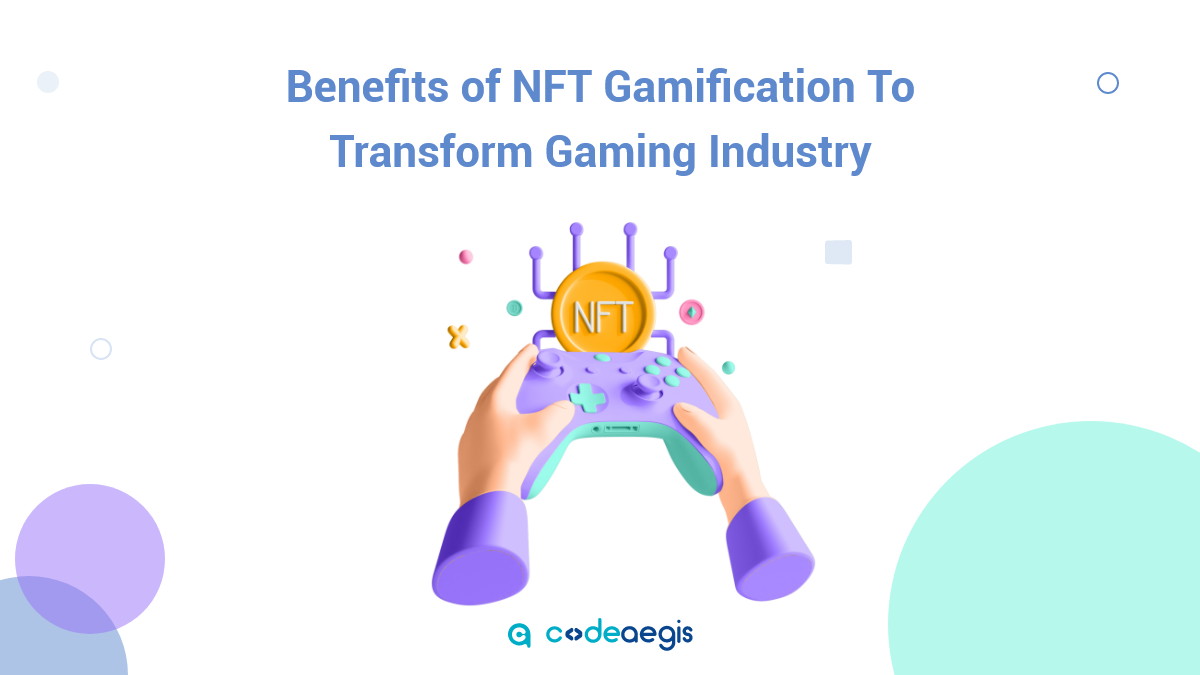
In recent years, the gaming industry has seen a surge in popularity, with many gamers turning to online gaming platforms and console games in order to escape reality. With so many people playing video

Summary: Car rental apps have become the heart of the business, stimulating growth, efficiency, and customization. They offer updated rental methods to stay relevant with Gen Z and Millennials, who ar

Table of Contents 1. What is ChatGPT? 2. What Are the Top Benefits of ChatGPT? 3. How Does ChatGPT Work? 4. Challenges With ChatGPT 5. ChatGPT and the Future of AI 6. Final Thoug

In today's digital world, businesses must keep up with ever-increasing consumer expectations and find new ways to engage their audience. That's where Progressive Web Apps (PWAs) come in. PWAs are a r

Application development is essential to fostering business efficiency while accepting new changes. Depending on the specific requirements, 85% of businesses rely on software development solutions to s

In the last few years, wearables have become increasingly popular. Fitness trackers, smartwatches, and even smart glasses are becoming more and more commonplace. And as the technology improves and bec

The mobile app market has grown to a staggering size, with over 1.8 million apps available in the Google Play Store and Apple App Store combined. Mobile apps have become a necessity for people worldwi

Generative AI? Is this still a question mark to you? If you don’t know what generative AI does, that would be a fair question, but it was not if you said that you haven’t interacted with

Want to establish a new business or improve an existing one? You should consider using blockchain technology Being a distributed database, Blockchain allows for secure online transactions. This techn

IPTV has established itself as a prominent technology that is gaining traction with its comprehensive platform applications. Unlike traditional methods like satellite, cable, or TV, IPTV has accelera

Having a mobile application is no longer a luxury—it's an essential tool for instantly capturing the market! To stand out in the rental businesses, a company must adopt tech-driven preferences

DeFi is a new kind of investment that’s taking the world by storm. So what is it? Essentially, DeFi is a digital asset class that allows you to invest in cryptocurrencies and other digital asset

Imagine a classroom where history comes alive in the 3D model of historical events. Biology students can explore the unique complexities of a cell as they have practiced it with real-world examples, a

As the world of startups becomes increasingly competitive, building an MVP is crucial for entrepreneurs looking to test their ideas and launch successful businesses. By creating a minimum viable produ

Mobile applications play a vital role in the development of multiple businesses in this digital world. Most companies are investing in iOS app development to strengthen their market appearance and dra

Augmented Reality and Virtual Reality are the two leading buzzwords in the technology era. What began as a completely new, significantly different technology has rapidly revolutionized into something

If you’re in the healthcare industry, then you know that data privacy and security are of utmost importance. In order to protect patients’ information, the Health Insurance Portability and

The UAE, and Dubai specifically, has really evolved from just a real estate and tourism market, and is quickly becoming a hub for digital innovation and online commerce. With the continued investment

Are you aware that the world is going through a significant shift in the way we make payments? According to a recent report by Deloitte, the total value of digital payments worldwide is estimated to r

Lately, the tech world has been abuzz with talk of the Metaverse, a groundbreaking concept that promises a shared virtual space where people can interact and engage with one another. This futuristic i

When it comes to mobile app development, one of the most important things you need to consider is the prototyping process. This will allow you to create a working model of your app so that you can tes

Decentralized Finance (DeFi) is a modern and evolving region of finance that is less centralized and more open to innovation and collaboration. DeFi enthusiasts laud its prospect of disrupting convent

Nowadays, the digital presence has revolutionized business dynamics. App development is not just evolving but breaking traditional barriers and emerging as strong and progressive solutions. With robus

If you’re planning to enter the fast-growing fantasy sports market, one of the most critical aspects considered is “What will it cost to build a fantasy sport that stands out and drives t

The healthcare industry is one of the most rapidly changing and growing industries worldwide. Mobile devices and apps have drastically changed how providers and patients interact and communicate.So, i

Do you run your own business and want to build an Android app? If yes, you must know about the latest technology trends playing a significant role in the android app development process. Technology i

Do you know what digital transformation with AI is and how it can impact your business? Organizations today are under pressure to digitally transform to stay competitive. This digital transformation

The two hottest frameworks in the mobile app development world are Flutter and React Native. They’re both cross-platform solutions that allow you to write code once and deploy it to Android and

With the ubiquity of smartphones and tablets, it only makes sense that mobile app development - which is the process of creating applications for smartphones and tablet devices - is becoming more popu

Necessity is the mother of invention origin! Have you ever wondered when an entrepreneur decides to start a business? When demand is high and supply is low, opportunities arise. But there’s mor

With the advent of technology, the financial industry has experienced a massive transformation in the past few years. Fintech applications have revolutionized the way we manage and invest our money.
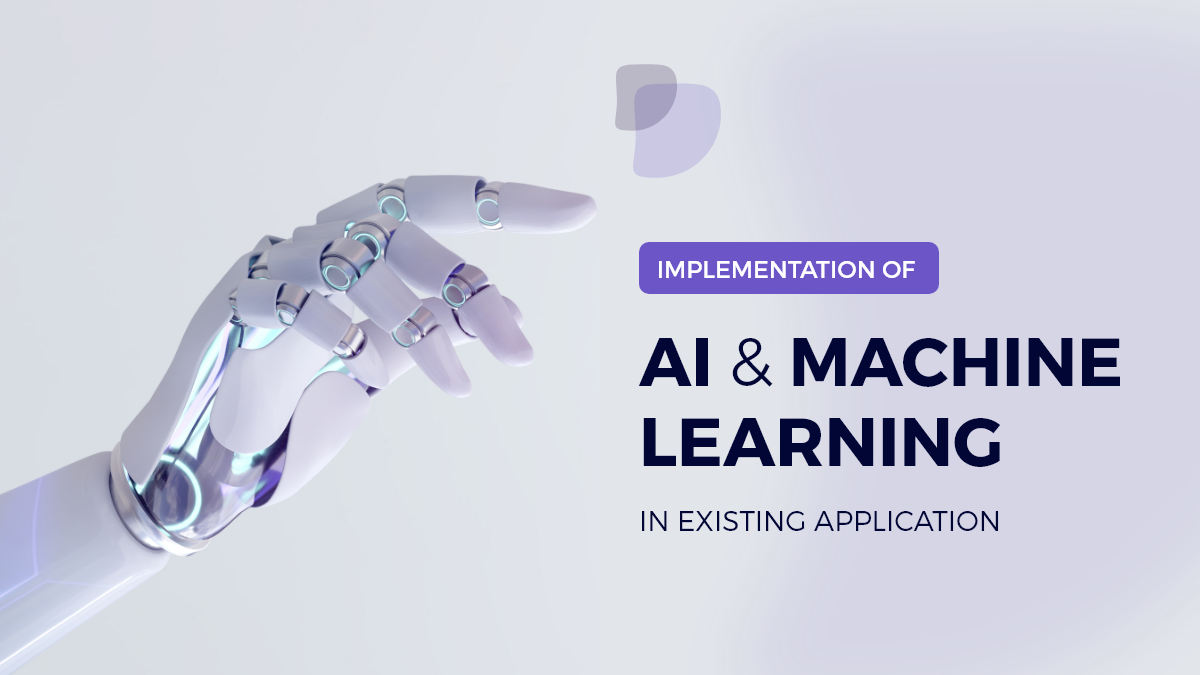
When it comes to developing an app, there's a lot to consider. Not only do you need to create a user-friendly interface and design, but you also need to make sure your app is able to meet the demands

The United Arab Emirates (UAE) is flourishing as the hub for blockchain technologies, transforming the digital ecosystem and having a forward-thinking government to maintain its competitive edge. Gove
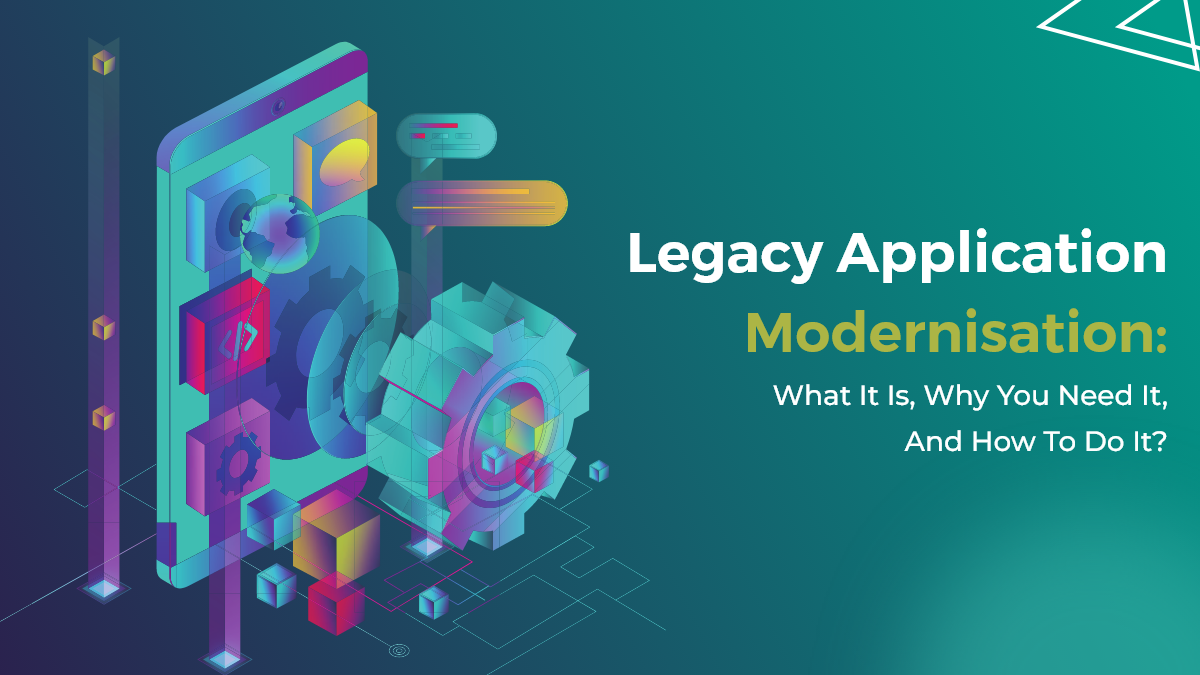
Mobile app development is quickly becoming a necessity for businesses. As the world becomes increasingly digital, companies of all sizes rely on mobile apps to reach customers and increase customer en

Have you ever found yourself in a situation where you desperately needed a product or service but didn't have the time or energy to go out and get it? Well, fear no more because on-demand delivery app

Blockchain technology and web development are two powerful innovations that have the potential to transform our world. While they may appear distinct, they share similarities and can work together to

Gone are the days when people used to wave down a taxi on the street or wait for one at the airport. With the advent of technology, people can now book a taxi with just a few taps on their smartphones

The gaming industry is proliferating with the advent of smartphones and PCs. Every age group, from children to adults, is well-engaged and fond of online gaming. The rapid evolution of mobile gaming a

Do you want to build a simple app for your business? Do you want to create an app that enhances the experience of users who play games on their smartphones? Whatever your reason, I have created this g
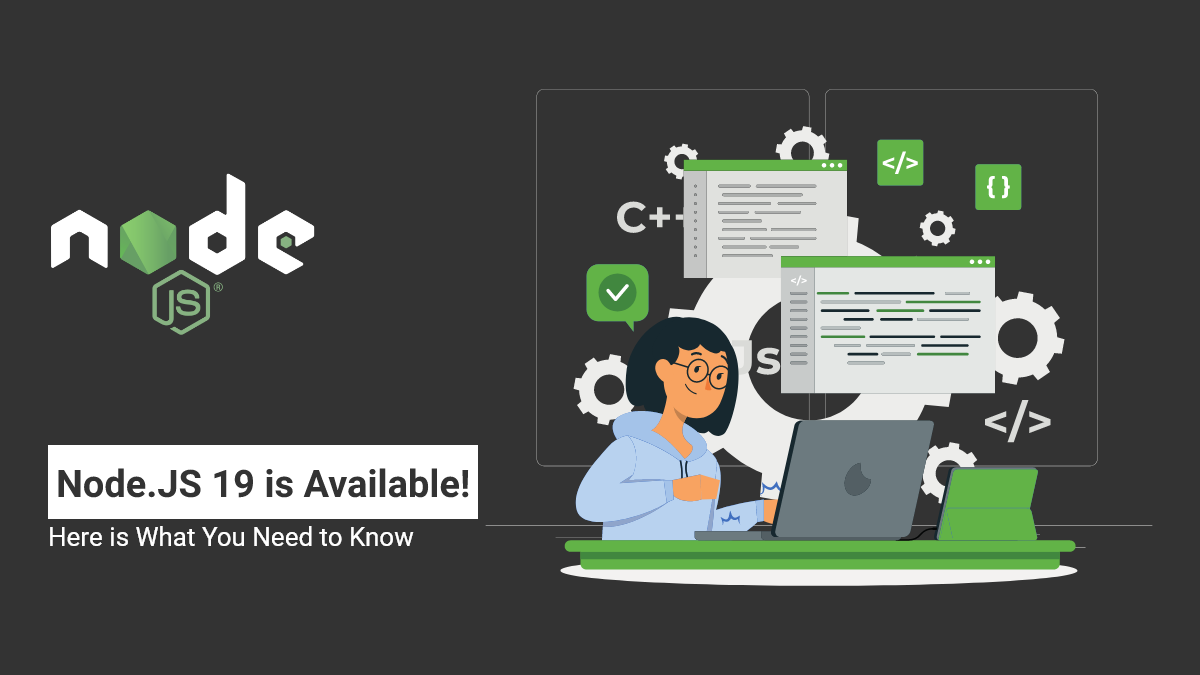
The launch of Node.js 19 is now available! It substitutes Node.js 18 as the current launch line, with Node.js 18 being encouraged to long-term support (LTS) next week. What do these two launches mean
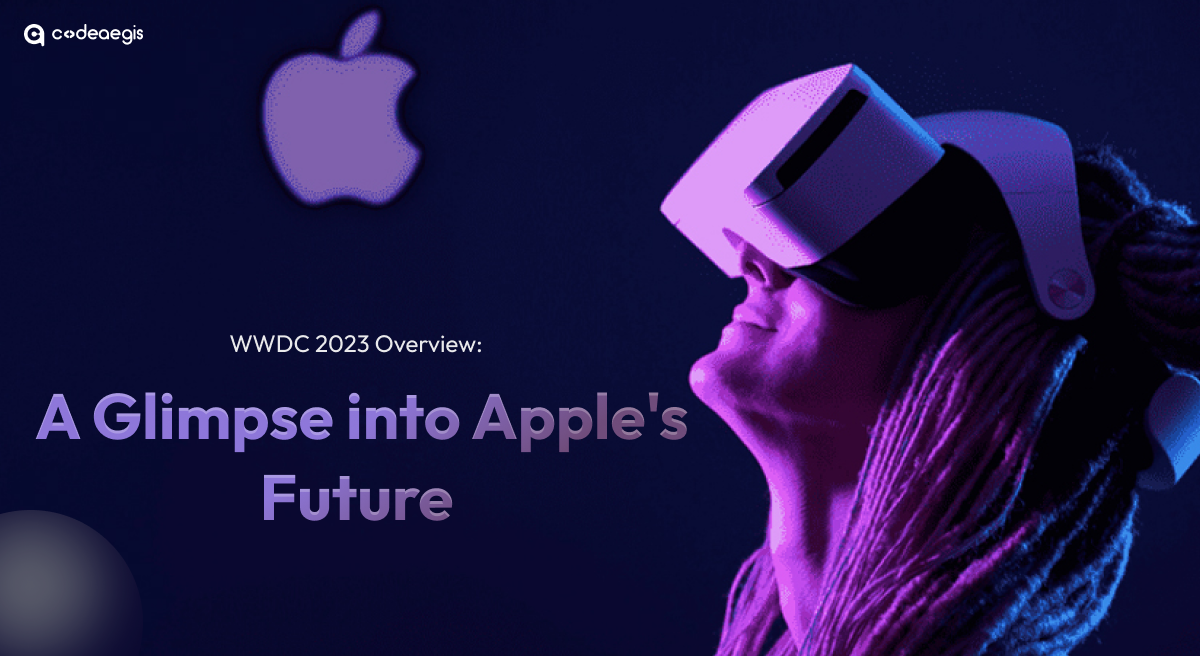
An extensive background working in Tech, Travel, and Education Industries. Currently involved in entire business operations process: Benefits strategy and implementation, systems integration, Human Re

Over-the-top (OTT) platforms like Disney Plus, Netflix, and Prime Video have gradually captured attention as traditional TV-watching methods have faded. Throughout the year, OTT platforms have created

The food delivery application has innovative, game-changing features that will transform the industry from the bottom to the top. According to Statista, the online food delivery market in the UAE has

You’ve likely heard the term “Artificial Intelligence” or AI until now—It’s 2025. But have you ever paused to consider how deeply AI has woven itself into the web of our

Google released Android 13 beta 4 to the public, and with it comes a slew of new features and updates. In this article, we'll walk you through everything you need to know about the latest version of A

Businesses these days are looking to have an edge over their competition by having a strong online presence. A website is not enough anymore, and many companies are turning to mobile apps as a way to

Building an App that promotes businesses and acts as a right hand has a separate fanbase! Creating an app for the business plays a fundamental role in elevating business operations, making seamless c

The introduction of online payment applications has changed how people perform financial transactions. A mobile phone with a banking app lets you quickly resolve various financial matters. Ta

Can you give thought to a week without coffee breaks at cafes? It might not be possible, but earlier, having coffee outside the house was never a thing. So how the tables have changed the corners?
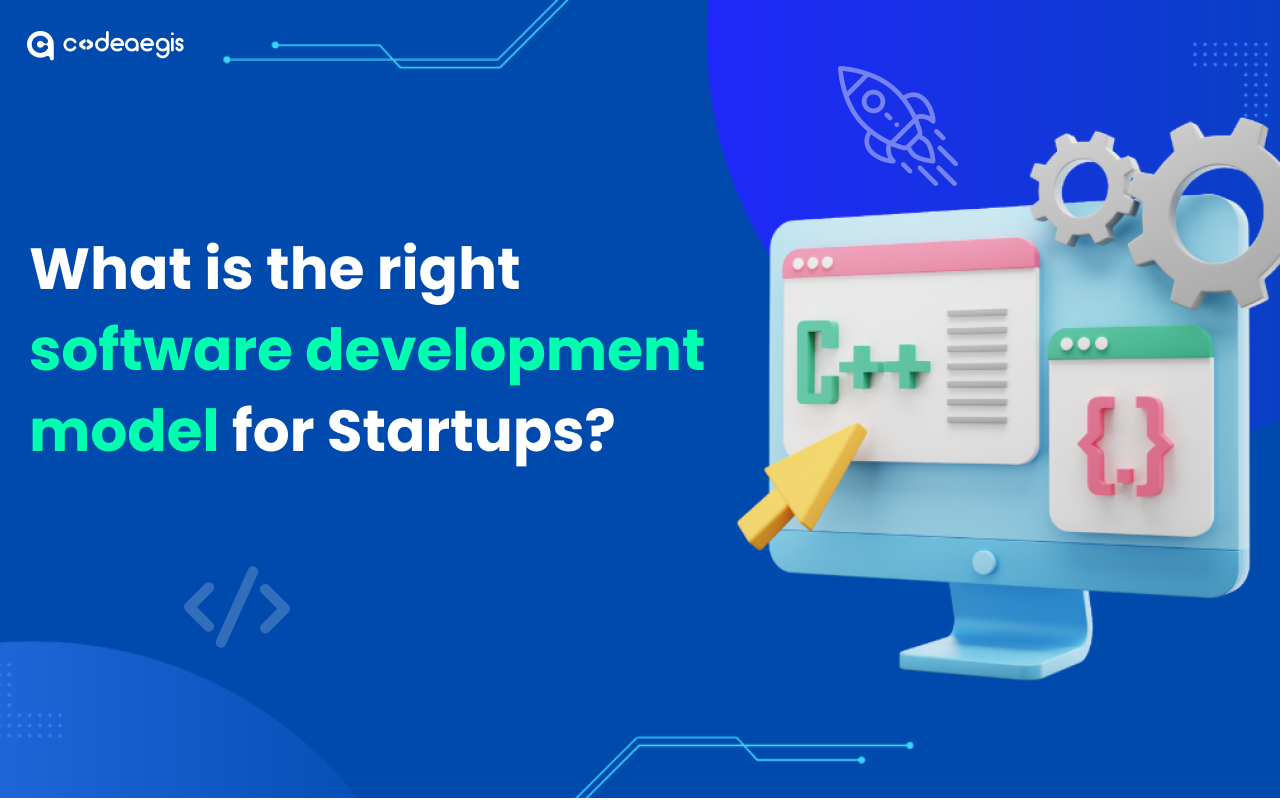
Sipping coffee and thinking of a startup has always been trendy. Similarly, hanging out with friends and promising them to start a business someday feels refreshing. Did you know that several success

Depending on what niche you’re in, video chat apps are becoming increasingly common in the world of business and technology. Whether it’s a small startup company or a multinational corpora

Is your business still relying on off-the-shelf software solutions that don’t efficiently meet your unique business requirements? If your mind instantly says yes, then let’s explore why in

Did you know that Dubai's prime residential market is projected to experience the world's strongest growth in 2025? The Middle East is buzzing with opportunities, especially in the realm of mobile app

Businesses after COVID are going through several changes, and the food industry is no different. Restaurants that have been doing dine-in are now struggling to keep up with the demand for delivery and

The world is digitizing at a very rapid pace, and in such a scenario, real estate businesses must also go digital to stay ahead of the competition. One of the best ways to digitize your business is de
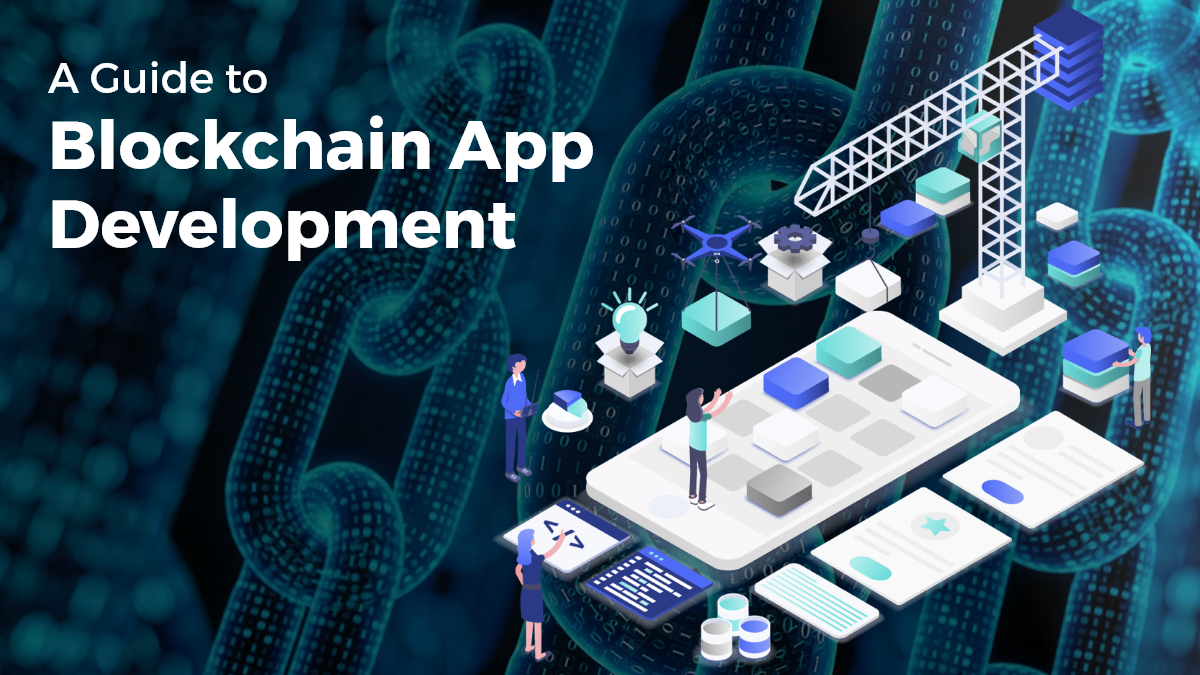
Blockchain technology has been a hot topic recently due to its potential to revolutionize various industries. Blockchain is a distributed ledger technology that ensures transparency, security, and dec

Picture this - a world where business transactions are seamless, secure, and transparent. This might have seemed like a distant dream before the advent of cryptocurrencies and blockchain technology, b

Imagine a world where you can speak your thoughts and desires, and the digital realm responds promptly, seamlessly integrating into your daily life. Whether you want to search for information, contro

Prime Minister Narendra Modi eventually launched 5G in India at the 6th edition of the IMC (India Mobile Congress). Reliance Jio and other telecom organizations documented the various use cases of 5G

By 2024, we all know that technology will be the future. What excites me the most is that technology has covered all the dimensions of businesses, enabling them to attain their potential and efficienc

Mobile applications have dominated the market, helping businesses to reinforce their full potential. Not only for the rental business, but mobile apps play a critical role in establishing a solid foun

Will DeepSeek and ChatGPT collide in the race for AI Supremacy? DeepSeek and ChatGPT are at the center of a heated debate that tends to shape the future of AI. The real-world implications and effecti

Table of Contents 1. What is Flutter? 2. Why Choose Cross-Platform Development? 3. Why is Flutter the Best Platform to Make Cross-platform Applications? 4. How Much Does it Cost to
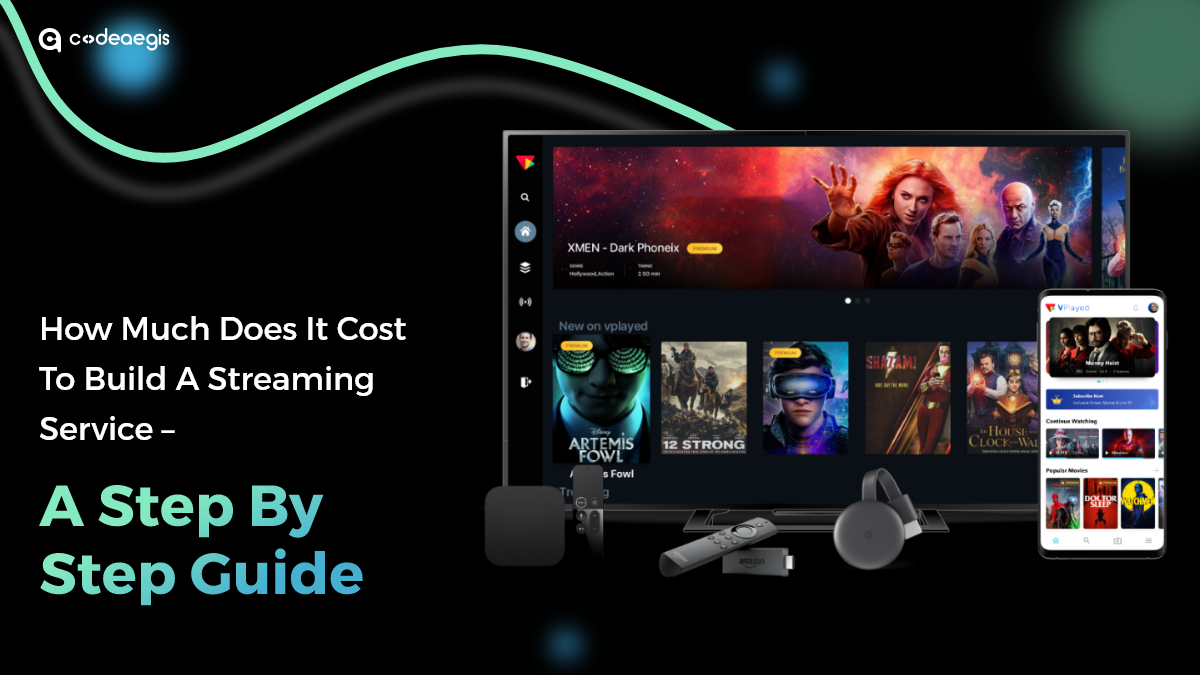
The rise of online video streaming services has revolutionized the entertainment industry, prompting businesses worldwide to explore the possibility of launching their own platforms. With giants like

The startup space is fast, competitive, and harsh. According to Exploding Topics, about 90% of startups fail. What would be the reason for that? There would be multiple reasons for startup failure, bu
The beacon technology market was valued at 519.6 million U.S. dollars in 2016, and it was estimated to increase at a CAGR of 59.8% to reach about 56.6 billion U.S. dollars in size in 2026. Throughout

As we head into the future, more and more people are looking to find ways to improve their healthcare. And with good reason - healthcare can be expensive, and it can be difficult to get the right care

Hiring a team of remote developers can be a daunting task, but it doesn't have to be. With a little bit of planning and the right approach, you can find the perfect candidates to build your dream prod

The mobile app market has grown to a staggering size, with over 1.8 million apps available in the Google Play Store and Apple App Store combined. Mobile apps have become a necessity for people worldwi

Are you looking to design a mobile app in 2025? Mobile application development is an ever-changing field, and it can be hard to keep up with the latest trends and best practices. But with this guide,

Blockchain technology is becoming the heart of multiple industries. It is robustly securing businesses through its core value, making it the first pick-up in the generative AIs. The blockchain is the

Australia is moving towards a big shift at a global level. It is strengthening the ties at the B2B level and becoming a hub for innovation, sustainability, and digital transformation. Backed with a r

Things have changed dramatically over the years with new opportunities, techniques, and future advancements. Real estate is the best industry to invest in, though the procedure sometimes irritates. Me
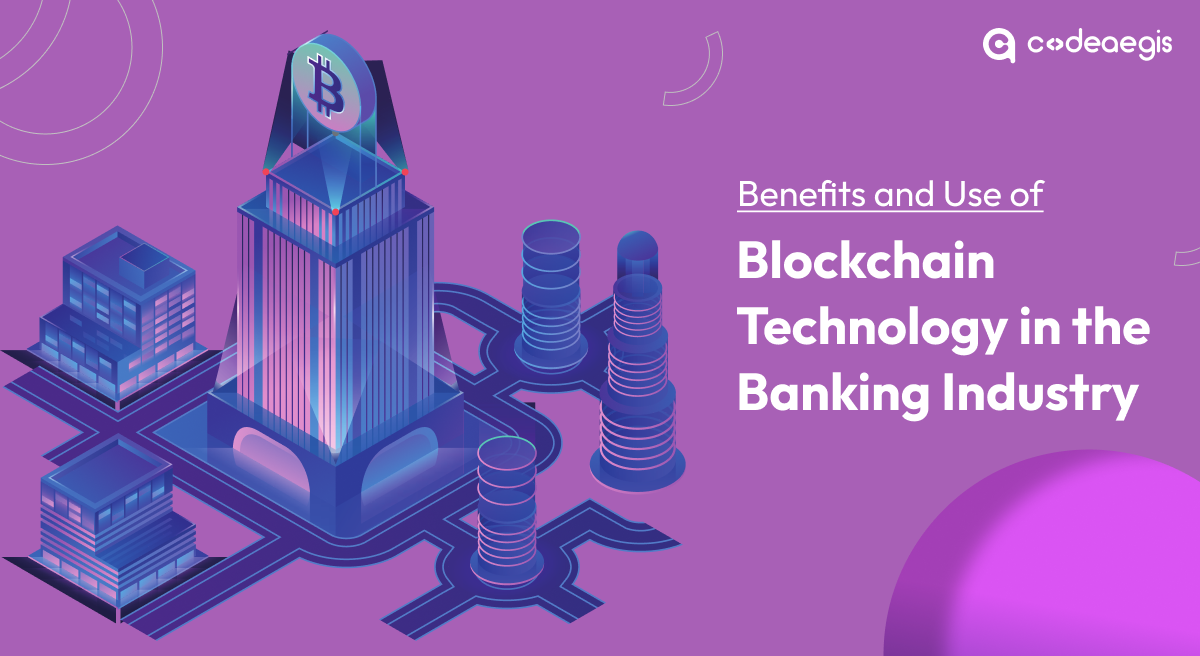
Picture this: a world where traditional banking transforms into a cutting-edge, efficient, and transparent system that leaves everyone in awe. Blockchain, often met with skepticism and uncertainty, is

As blockchain technology continues to evolve, so too does the landscape of projects built on its foundation. The worldwide Blockchain market is predicted to expand at a CAGR of 42.8% (2018-2023), dire
Have you ever felt like you’ve attracted 30% more consumers to your shopping sales by using a technical hack to revive your shops? It would work like a person was crossing through next to your

It's no secret that the digital world has transformed many aspects of our lives, and it is only going to continue changing in ways we can't even imagine yet. To help businesses keep up with this rapid

Technology has come a long way in the past decade, and augmented reality (AR) is one of the most exciting development fields. AR technology superimposes digital content into the real world, creating a

Rental businesses are gaining market share by offering essential services that help other businesses minimize downtime and maximize profitability. This growth trend is particularly strong in the servi

The world of gaming is rapidly evolving, and the latest buzzword is "metaverse." The term refers to a virtual world where users can interact with each other and digital objects in real time, using imm
Leave a Reply
Your email address will not be publishedDO YOU HAVE ANY PROJECT
Let's Talk About Business Solutions With Us
India Address
57A, 4th Floor, E Block, Sector 63, Noida, Uttar Pradesh 201301
Call Us
+91 853 500 8008
Email ID
[email protected]




.jpg)






